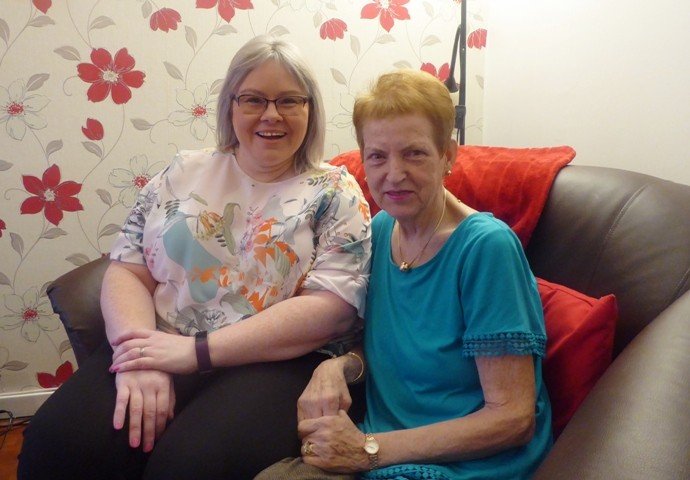- Home
- My services
- My home
- My community
- About Us
- News
- Contact us
- Accessibility information
New initiative breathes life into empty Inverclyde properties
A new project has been launched to tackle long-term privately-owned empty homes in Inverclyde.

6 February 2018
The project, a partnership between River Clyde Homes, Inverclyde Council and The Scottish Empty Homes Partnership (SEHP), will address the wasted resource of properties that have been empty for more than six months.
A new Empty Homes Officer, Barbara Crichton, has been appointed as part of the initiative. She is based within Inverclyde Council’s Public Health and Housing Team at Safer and Inclusive Communities.
The number of long-term privately owned empty homes in Inverclyde is estimated at 560. The common definition is of a property that has been empty for over six months but many have been empty for years. Empty homes are both costly and wasteful for owners and impact on the surrounding area if the home and garden are not regularly maintained. These homes can accumulate repair issues and attract antisocial behaviour which can effect River Clyde Home customers in the area.
Barbara is working to identify these homes and their owners and assist them to bring the home back into use. Primarily, offering an advice and information service to help owners to either sell or rent-out their property, she can provide additional incentives to encourage action to bring these properties back into use.
Indeed, Barbara has already achieved several successes in her new role. Greenock resident Elspeth Ahlfeld felt overwhelmed at the prospect of trying to sell her property which had been empty for nine years after poor health forced her to move out but, with Barbara’s support, her property sold at auction for more than the home report valuation.
Barbara spent time with Mrs Ahlfeld to understand the obstacles to selling and offered practical assistance by identifying an auction house which was willing to change the locks, clear the garden and carry out a home report in order to get the property ready for sale, in return for recouping their costs once the property was sold.
“I was suffering from poor health and had no idea about how to go about selling my house”, explained Elspeth, “The longer it went on the bigger burden it became, but meeting Barbara was the best thing that could have happened. The house is now sold and it’s such a relief not to have to pay bills for it anymore. It really is a weight off my mind.”
Jenny Speck, a River Clyde Homes Board member, said: “There is demand for homes in Inverclyde across all sectors. The reasons for empty homes are numerous and include sentimental attachment, lack of time, skills or finance; with a bit of support and advice these homes can be transformed. The benefits of bringing empty homes to the market place include adding to the housing supply, contributing to area regeneration and creating safer neighbourhoods.”
Inverclyde Council’s communities vice convener, Councillor Natasha Murphy, said: “Barbara will work in partnership with other Council departments and external agencies to support the initiative to bring empty homes back into use. This includes working with local housing associations to tackle empty homes which are having a negative impact on their stock. Often these properties are obstructing regeneration and this is currently happening in several areas of Inverclyde. She will also try to have empty flats in tenement properties reoccupied which by virtue of them being empty are obstructing common repairs work.”
According to Scottish Government figures, there are 34,000 long-term empty homes across Scotland.
Shaheena Din of the Scottish Empty Homes Partnership which is hosted by Shelter Scotland and funded by the Scottish Government, said: “It is wonderful to see this shared services project being launched in Inverclyde.
“Our research shows that almost all the empty properties brought back into use last year were in areas with dedicated staff providing specialist information and support to owners.
“This is extremely positive news for housing and communities in Inverclyde.”
 01475 788887
01475 788887
